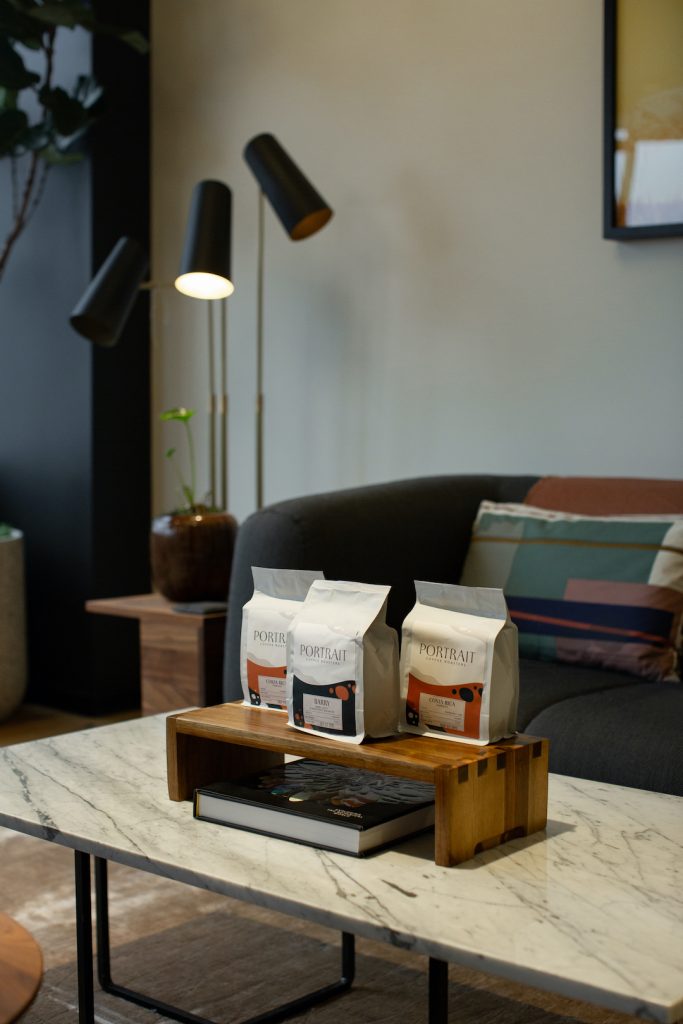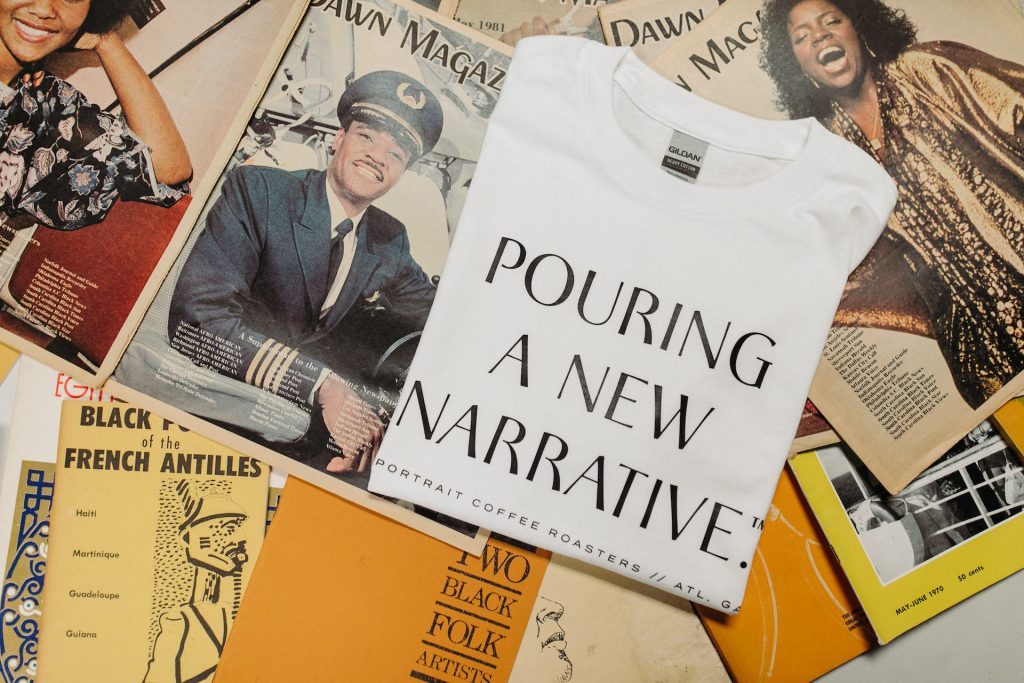Industrious recently unveiled a new effort to build inclusive, welcoming communities both within and beyond its walls: a rotating coffee program highlighting minority-owned roasters. Each quarter, members will get the chance to try new brews created in a different region of the country.
 You‘ll be able to try Portrait Coffee Roasters at Industrious locations throughout the year. (Aspen Jeanne Photography)
You‘ll be able to try Portrait Coffee Roasters at Industrious locations throughout the year. (Aspen Jeanne Photography)One of these roasteries has a special tie to Industrious: Portrait Coffee Roasters, whose cofounder, Aaron Fender, was once a Community Manager at Industrious West Midtown in Atlanta. Together with his friend, cofounder John Onwucheka, Fender launched Portrait as a way to create more opportunities in the city’s historic West End. If you love Portrait’s roasts — which feature beans from countries as far-flung as Papua New Guinea — you can sign up for the coffee club or keep an eye out for their first brick-and-mortar location, set to open this fall in the West End’s midcentury Lottie Watkins Building.
Read on to hear from Fender about Portrait’s founding, his favorite way to take coffee, and more.
How did Portrait get started?
We’d [Aaron Fender and John Onwuchekwa] become friends, and a few years ago we just looked at the community we were a part of. The West End of Atlanta is an opportunity desert. There are not a lot of ways out for kids that live here, nor ways to improve economic conditions in the community. We felt if it was done right, coffee was an industry that could be introduced into our community and also serve to improve it.
Where do you source your beans from?
We source our beans through green coffee importers. We’ve brought coffees in from Papua New Guinea, Rwanda, Ethiopia, Brazil, Colombia, Uganda, Costa Rica, and Guatemala so far.
How do you approach roasting and roast types (light, medium, dark)?
Most of our coffees end up being somewhere between a light and medium roast. A large part of our roasting practice centers around properly developing each coffee to reflect the best attributes of the bean and its origin. Some coffees will be sweeter, bolder, smoother, or more acidic depending on the beans.
What’s your personal favorite way to drink coffee?
My personal favorite way to brew coffee is making a pour over using a Kalita Wave.
 Portrait sells shirts and other items as well as coffee. (Courtesy of Portrait Coffee Roasters.)
Portrait sells shirts and other items as well as coffee. (Courtesy of Portrait Coffee Roasters.)When do you do your best work?
I do my best work early in the morning. I brew a cup of coffee and will typically have NPR as background noise to start my day.
How do you believe coffee connects us?
I love the sense of community you can build around a cup of coffee. Coffee is a daily ritual for about two-thirds of Americans and I’m happy that Portrait can play a small part in jumpstarting somebody’s day.
What should we have asked you?
Portrait represents a desire to reimagine the picture that comes to mind when [most people] think of specialty coffee. Coffee was first discovered by [Africans] more than 1,000 years ago. These trailblazers couldn’t have foreseen the global impact of their discovery. On the other hand, they likely never imagined their faces would be forgotten, even though the pigment of the drink reflected their own.
At Portrait, coffee is more than a product: It’s a platform to do good. We hope to paint a more accurate history. A history that includes those who have been photoshopped out.